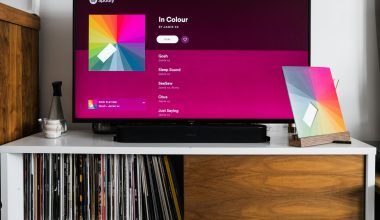If you’ve ever dreamed of owning a music label, you’ve probably wondered, “How do you start a record label?” Starting your own record label can be an exciting and rewarding journey, but it’s not without its challenges. Whether you’re passionate about discovering talent, promoting music, or influencing the industry, creating your own label can give you the power to shape the future of music.
This comprehensive guide will take you step by step through the process of starting a record label, from building a foundation to growing your brand and selling tracks on platforms like Beatport. Let’s dive in!
Understanding What a Record Label Does
Before diving into the logistics of how to start a record label, it’s crucial to understand what a record label does.
- Talent discovery: Find and sign talented artists.
- Music production: Oversee recording, mixing, and mastering of songs.
- Distribution: Ensure music reaches streaming platforms, physical stores, or online outlets.
- Marketing and promotion: Handle branding, social media, and campaigns for artists and releases.
- Financial management: Manage budgets, royalties, and contracts.
If this sounds exciting, you’re ready to explore the next steps in creating your label.
Define Your Vision and Goals
When asking yourself, “How do you start a record label?” the first step is to define your purpose and vision.
Key Questions to Ask:
- What genres will your label focus on?
- Will you work with emerging artists or established musicians?
- What do you want your label to represent in the music industry?
Having a clear vision will guide every decision you make, from branding to the artists you sign.
Research the Music Industry
Understanding the music industry is vital when starting a record label. Research the latest trends, challenges, and opportunities in the business.
Important Areas to Study:
- Revenue streams: Learn how labels earn money through royalties, licensing, and merch sales.
- Competitors: Study other labels in your genre to understand their strategies.
- Digital platforms: Familiarize yourself with streaming services like Spotify, Apple Music, and Beatport.
This knowledge will help you navigate the complexities of the music industry and make informed decisions.
Choose a Name and Branding for Your Label
Your record label’s name and branding are critical to its success. They represent your identity and help you stand out in a crowded market.
Tips for Choosing a Name:
- Keep it unique and memorable.
- Reflect your genre or mission.
- Ensure it’s available as a domain name and on social media platforms.
Developing a Visual Identity:
- Create a logo that’s versatile and professional.
- Choose a color palette that aligns with your brand.
- Maintain consistency across all marketing materials.
Strong branding builds recognition and credibility for your label.
Legal and Business Setup
When learning how to start a record label, setting up your business legally is a crucial step.
Steps to Establish Your Label:
- Register your business: Choose a business structure (LLC, corporation, or sole proprietorship) and register it with your local authorities.
- Trademark your name and logo: Protect your brand identity.
- Open a business bank account: Keep finances separate from personal accounts.
- Get the necessary licenses: Obtain mechanical, performance, and synchronization licenses for music distribution.
Consulting a legal professional can help ensure you’re compliant with all regulations.
Building Your Team
Running a record label often requires collaboration. Consider building a team to help manage different aspects of the business.
Key Roles in a Record Label:
- A&R (Artists and Repertoire): Scouts and signs talent.
- Marketing manager: Promotes releases and handles branding.
- Legal advisor: Drafts contracts and ensures compliance.
- Finance manager: Handles budgets, royalties, and payments.
If you’re starting small, you can wear multiple hats, but as your label grows, having a dedicated team is essential.
Finding and Signing Artists
Finding the right artists is one of the most exciting parts of running a record label.
How to Scout Talent:
- Attend live shows and music festivals.
- Explore social media platforms like Instagram, TikTok, and YouTube.
- Use music platforms like SoundCloud or Bandcamp to discover new talent.
Tips for Signing Artists:
- Draft clear contracts outlining terms like royalties, rights, and obligations.
- Build relationships with artists by understanding their vision and goals.
- Focus on quality over quantity to ensure your roster aligns with your brand.
Producing and Releasing Music
Once you’ve signed artists, the next step is producing and releasing their music.
Steps in Music Production:
- Recording: Work with producers and engineers to create high-quality tracks.
- Mixing and mastering: Ensure the music sounds polished and professional.
- Artwork and visuals: Design album covers, promotional materials, and videos.
Releasing Music:
- Create a release schedule to build anticipation.
- Distribute music through digital aggregators like DistroKid, TuneCore, or CD Baby to platforms like Spotify, Apple Music, and Beatport.
Efficient production and release strategies are key to your label’s success.
Marketing and Promotion
Effective marketing ensures your releases reach the right audience.
Marketing Strategies for Your Label:
- Social media: Share updates, teasers, and behind-the-scenes content.
- Email newsletters: Keep fans informed about new releases and events.
- Collaborations: Partner with influencers, DJs, or other artists to expand your reach.
Using Beatport and Other Platforms:
If you’re focusing on electronic music, selling your tracks on Beatport can boost your visibility. Optimize your artist profiles and track descriptions for better discoverability.
Managing Finances and Royalties
Understanding how to manage money is crucial when learning how do you start a record label.
Key Financial Considerations:
- Royalties: Pay artists fairly for streams, sales, and performances.
- Budgets: Allocate funds for production, marketing, and promotion.
- Revenue streams: Explore options like merch sales, licensing deals, and live events.
Using tools like royalty calculators and accounting software can simplify financial management.
Growing Your Label
Once your record label is up and running, focus on growth.
Strategies for Expansion:
- Sign more artists to diversify your roster.
- Collaborate with bigger labels or distributors.
- Host events, tours, or showcases to promote your label.
Consistency, innovation, and strong relationships with artists and fans will help your label thrive.
Conclusion:
Starting a record label is an exciting journey that combines passion, creativity, and business acumen. By following this guide, you’ll understand how to start a record label from scratch, build a strong foundation, and grow your brand in the competitive music industry.
Ready to take the plunge? Start small, stay focused on your vision, and watch your label make waves in the music world.
Related Articles:
For further reading, explore these related articles:
- LP Meaning in Music: A Beginner’s Guide to Long-Playing Records and Their Legacy
- Best Mic for Recording Vocals: Top Picks & Simple Buying Guide
- 5 Things You Should Do Before Going to a Recording Studio
For additional resources on music marketing and distribution, visit Deliver My Tune.





